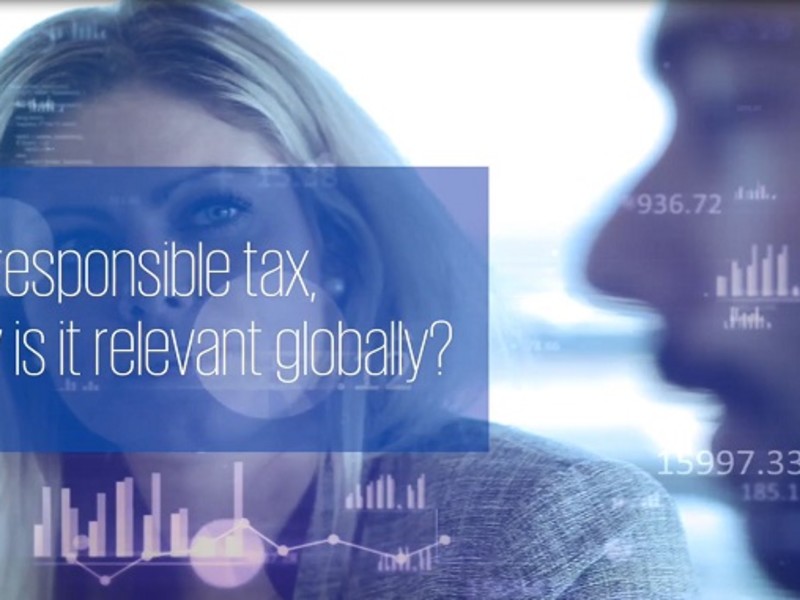Travelling towards greater tax transparency
From a low base, an acceptance that the direction of travel is greater tax transparency

From a low base, an acceptance that the direction of travel is greater tax transparency

Carl Dolan, Director, Transparency International discusses his views on responsible tax and transparency.

Since the beginning of 2020, and despite the tremendous challenges faced since then, organizations globally have been given the chance to reset, rethink and reshape how to make a positive impact on the world around us, with KPMG firms being no exception.

Professionals in the member firms of KPMG International (“KPMG”) welcome the opportunity to comment on the OECD’s public consultation document entitled “Public Consultation Document: Review of the Country-by-Country Reporting (BEPS Action 13)” released on February 6, 2020 (the “Consultation Document”).

At the end of August 2019, a group of Danish pension funds (the Investors), published a joint Tax Code of Conduct with principles and recommendations for unlisted investments.

It wasn’t so long ago that corporate tax policy and practice was considered almost exclusively the domain of tax departments and revenue authorities. But this is no longer the case: corporate tax is an issue that is debated and contested firmly within the public sphere. The days of tax as a back office function are over.

It is often said these days that there is a crisis of trust. Whether that’s a crisis of trust in our media, in our politics, or in our institutions. We at the All-Party Parliamentary Group on Responsible Tax have likewise been concerned about trustworthiness, specifically in the context of tax.

“Trust” — in business and politics — has been spoken about and even over explained to the point of exhaustion. We have written elsewhere that the so-called crisis of trust is in fact a crisis of leadership — with “trust” often used as an easy proxy for anything and everything that goes wrong and the response being “to re-build it”.But...

Tax Justice for Promoting Equality and Social JusticeI recently attended and spoke at a conference with the above title in Nairobi from 12-14 March 2019. The conference was organised by the Jesuit Conference of Africa and Madagascar and the Jesuitenmission in Germany and sponsored by Global Financial Integrity and Misereor. An interesting aspect of the conference was that...

Naz Klendjian, Partner, Head of Infrastructure Investment, KPMG LLP Chris Morgan, Head of Global Tax Policy, KPMG LLP“Tax is the entry fee we pay for a civilised society. Without it, there can be no roads, no schools, no hospitals, no social care.” This guiding thought behind KPMG’s 2014 Responsible Tax Project serves as a useful way to introduce a discussion...

During the first conference of the Platform for collaboration Tax, “Taxation and SDGs” (the UN Sustainable Development Goals), held in New York, 14 16 February 14-16, 2018 KPMG hosted a side event entitled The Role of Responsible Tax.

At the end of November I was privileged to take part in a two and half day conference at Wilton Park1 entitled “Tax capacity building for tomorrow: digital and analogue approaches”.

Over the past decade, seldom has a month gone by without the subject of corporate tax avoidance making headlines.

The speed of change within the transparency area is unprecedented and new disclosure requirements, new cooperative compliance schemes and new anti-avoidance legislation are introduced all over the world. The increasing number of legislational changes puts significant administrative challenges on both companies and tax authorities. Rebuilding trust in multinationals, in the tax systems and in the authorities' ability to collect the...

KPMG International’s Global Tax and Benchmarking survey conducted across 35 countries and 270 respondents suggests that behaviour is changing among tax authorities worldwide. Feedback indicates that audit activity has increased across the board with international tax and transfer pricing in particular leading the way.

In 1996 Richard Musgrave, an American economist at the University of Michigan, coined the phrase “fiscal citizenship” in a critique of the book by Lawrence Zelenak, “Learning to Love Form 1040: Two cheers for the Return-based mass income tax”.

‘‘An Approach based on transparency, objectivity, ethics and sustainable taxation for the common good of all stakeholders in the society.’’